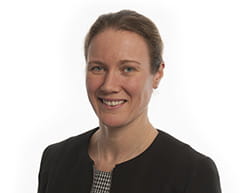As of 28 June 2022 the Inquiry is officially underway and will look at the preparations for, and response to, the pandemic in the UK.
The Inquiry's Terms of Reference have been set following a consultation which received over 20,000 responses. As expected, the Inquiry will be wide-ranging with the added discretion for the Chair, Baroness Hallett, to explore issues in more depth as required.
As we discussed in our last update, the broad themes set out in the draft Terms of Reference would likely lead to a long running inquiry. The final form of the Terms of Reference are even wider in scope than previously envisaged and include a review of public health decision-making, the response of the health and care sector and the economic response. The Inquiry will also now look at the public health response relating to the impact on the mental health and wellbeing of the population, whether or not they were bereaved or significantly impacted by the pandemic, the impact on health and care sector workers and other key workers, the impact on children and young people, education and early years provision and safeguarding and support for victims of domestic abuse.
There will also be additional elements to the review on health and care settings across the UK. Previously the Terms of Reference included the management of the pandemic in hospitals, care homes and other care settings. Now the Inquiry will also look at primary care settings such as General Practice, care in the home, including by unpaid carers and antenatal and postnatal care. The economic response will look at support for businesses and jobs and now also the self-employed.
In terms of the time period subject to review, the Inquiry will consider preparations and response at any time prior to the start date of the Inquiry. This suggests that the Chair will be able to consider historic planning long before Covid-19 had arrived. This will likely be relevant to the issue concerning the procurement of PPE.
Baroness Hallett has set out 7 promises as to how the Inquiry will be conducted, which notably include: listening to people's experiences, the complete independence of the Inquiry, and completing the Inquiry as speedily and efficiently as possible with regular progress updates and interim reports during the process.
The Inquiry is arranging public evidential hearings from 2023. The next step in relation to the formal process of gathering evidence (which is due to start very soon) will be to send out Rule 9 requests (Rule 9 of the Inquiry Rules 2006), which is a request by the Inquiry for written evidence on specific matters. This can be addressed to an individual, an organisation or a group. The Inquiry will also invite applications for "core participant" status, which involves an individual or entity having a right to participate in the Inquiry including having access to disclosure of evidence relevant to their role and having the opportunity to make opening and closing statements. Baroness Hallett will set out her approach for the next stage of the Inquiry's work in July, following which we expect to have more information on the timetable.
We will continue to monitor the progress of the Inquiry and will provide regular updates. For any queries on how the Inquiry could impact you or your organisation please contact us.

